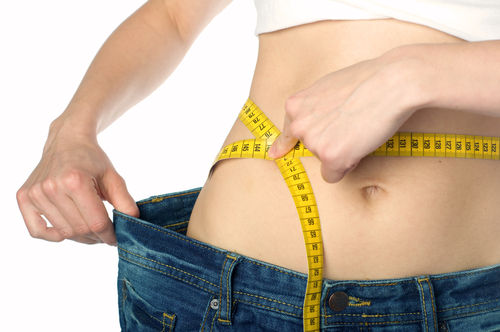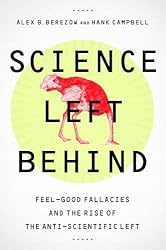 Credit: Shutterstock
Credit: Shutterstock
Imagine someone could write a book that was guaranteed to help you lose weight; it could "retrain" your body's own cells to burn calories, it could teach your body how not to crave pizza.
It sounds great. If such a program actually existed, people wouldn't be obese unless they really wanted to be obese. And yet people are obese, despite the fact that hardly a week goes by that The New York Times bestseller list doesn't have a diet book on it.
What gives? Well, you know the answer if you read the American Council on Science and Health. There is no miracle food, no matter what The Dr. Oz show claims. And Michael Pollan can sell organic food to his adoring readers, but it won't make them thin in and of itself, ditto for Dr. Mark Hyman's alternative medicine practice. That's not to say their customers won't get thinner, they certainly will. Heck, a cleanse is useless for its intended purpose -- "detoxifying" -- but many people lose weight, because it is a crash diet. The same goes for diet books. If I write a "Lose Weight The Big Mac Way" book, and you follow it, you will get thinner, because I will say only eat 1,000 calories in Big Macs a day.
The problem has become that everyone wants to be the next Dr. Oz. He clearly has no accountability and because he's a TV star, Columbia University will let him get excoriated on the floor of Congress, be the poster child for anti-science hysteria, and ignore other faculty member concerns about how much he undermines public trust in science and health.
The only thing that might make a diet book even more fishy than they otherwise are, is if a doctor writes it, notes Julia Belluz in Vox. Because having a fancy title adds credentialism -- to the people who buy diet books, anyway.
If you want to write your own and become the next Dr. Oz, here are four things that will work, even if you can't be bothered with that pesky medical degree. If Dr. Phil can do it, so can you.
- Use lots of anecdotes. This seems obvious. Though scientists dismiss anecdotes, they are popular among anti-science activists. Environmental Working Group, Natural Resources Defense Council, Greenpeace, they all love giving their lawyers lots of anecdotes to create "weight of evidence." They got that technique from diet books, and diet books got it from homeopathy. It's lasted 200 years, so clearly the formula works, even if homeopathy and diet gimmicks don't.
- Share the hidden secret that Big Pharma/Big Food/Big Medicine has been hiding from the audience. It should involve some foreign food that has been gaining in popularity. If you don't see a new one you like on the current bestseller lists, just go back to old ones in tomes like "Grain Brain," "Wheat Belly" or "The Zone." You can even change the names. Giving up bread and pasta was old advice but giving up gluten made it sound new and science-y again. If you get through this article, I recommend "The Martini Diet."
- Be patronizing about everyone and everything else in mainstream nutrition and common-sense advice, though obviously not about the person who just bought your book. They are victims of Item 2, after all. Use pictures of thin people in their early 20s to suggest they got that way using your diet plan.
- Have 4 bullet points. See how I just did that?
Belluz recommends that the easiest way to end the scourge of diet books is to stop buying diet books. But if you buy diet books, you aren't going to read this article or the Council and you probably don't read her either, so that advice may be as pointless as whatever Gwyneth Paltrow is selling this week. But its as worthwhile as going on a probiotic diet.



